The Tokyo Tech Academy for Convergence of Materials and Informatics (TAC-MI) held a two-day event entitled “Intelligent Services: A Social Perspective” on December 8 and 9 to brainstorm new social services for the future. This workshop was held in person at Tokyo Bay Makuhari Hall, the same venue that hosted the TAC-MI International Forum from December 5 to 7.
During this workshop, held annually, students aim to develop a broad perspective and boost their leadership skills by considering solutions to issues in future society. TAC-MI students, overseas students, and young and emerging researchers from industry form groups, identify issues in future society, and discuss and propose solutions to these issues while applying knowledge and experience from their own research fields.
Innovating a society that co-exists with AI through materials and informatics
This year’s event focused on “innovating a society that co-exists with AI through materials and informatics.” In the workshop, twenty-two doctoral students from TAC-MI and eight overseas students formed six groups to think about services and solutions that can be implemented by 2032. TAC-MI set the theme for the workshop and entrusted co-design, management, and facilitation to Leave a Nest Co., Ltd., a Japan-born company that supports the advancement of projects with potential global impact.
Excursion to discover issues and deepen bonds
On the afternoon of December 7, the day before the workshop, an excursion was held in Tokyo to deepen bonds between group members in preparation for the workshop. Participating students, who were divided into six groups, toured the Imperial Palace Gardens, the area around Tokyo Station, Sensoji Temple, and Tokyo Skytree. The diversity of the groups allowed the participants to begin considering not only societal issues that affect them individually, but also issues that have a broader impact globally.
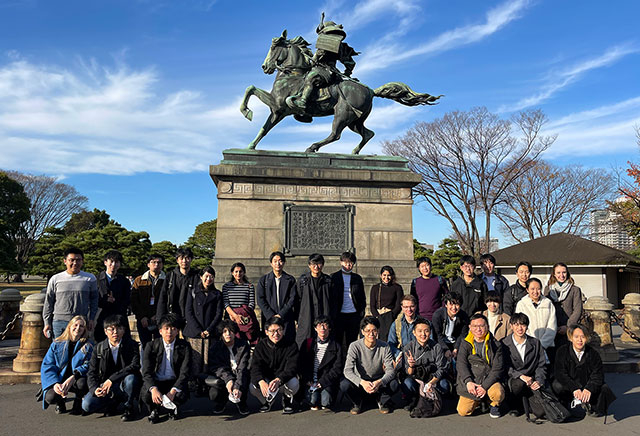
Participants in front of Kusunoki Masashige statue near Imperial Palace
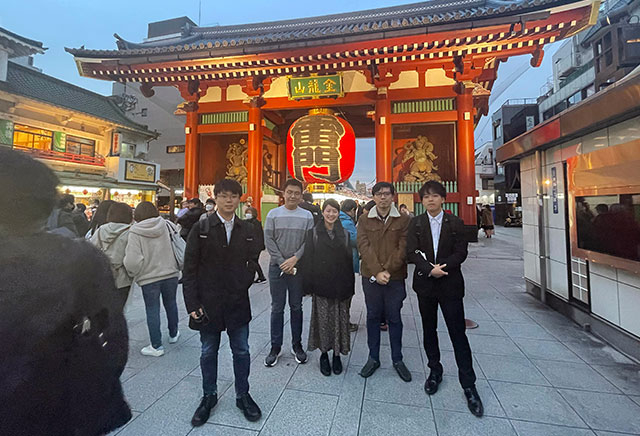
Posing in front of Sensoji Temple’s Kaminarimon
Entrepreneur developing AI technology shares views
The first day began with an explanation of the workshop objectives to the participants. After this, Kazuya Takahashi, founder and CEO of The Harmony Inc., gave a special lecture entitled “Happiness for all involved in caregiving” about the vision and trial-and-error process in the development of artificial intelligence (AI) to prevent the deterioration of dementia. The participating students asked many questions about problems in nursing care and challenges in AI development, and the session provided an excellent opportunity to think about utilization of AI technology in society.
Sharing issues, then zooming in on particular ones
After the lecture, participants split into six groups to share the issues they had discovered, and to decide which issues they should focus on. Each group was also joined by a graphic facilitator to stimulate the discussions and create visual representations of the participants’ ideas.
Students recorded on sticky notes the issues they found during their excursion, and then brainstormed which issues they wanted to solve and why. At the end of the morning of the first day, each group gave a one-minute presentation on their chosen issue.
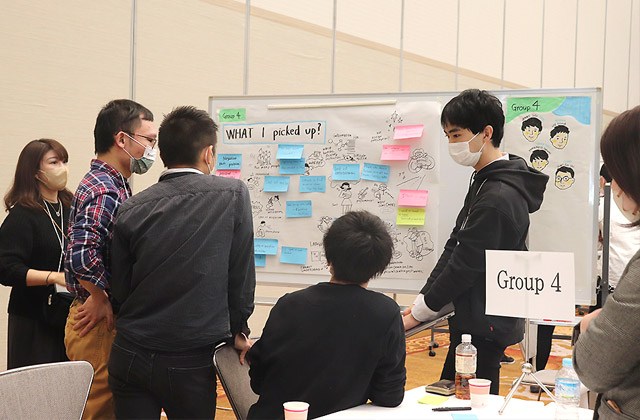
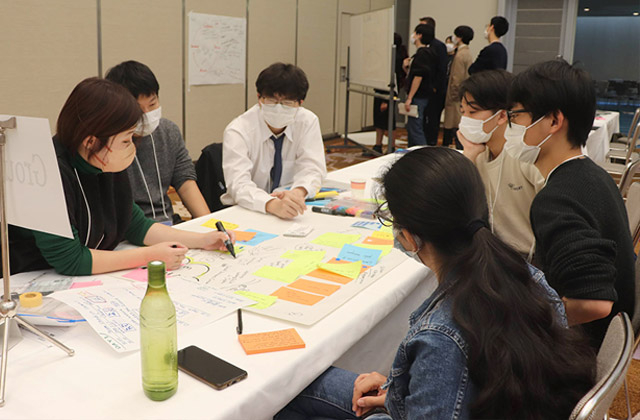
Teams sharing issues and deciding their focus
Envisioning a better future by solving issues
On the afternoon of the first day, students analyzed the issues, and considered ways to achieve a future in which these issues could be solved. Late on the first day, each group gave a poster presentation and received advice from faculty members and facilitators. After receiving feedback for the poster presentation, each group brushed up their ideas and revised their solutions.
On the second day, the students thought about how and in what setting their proposed service would be used, and deepened their discussions about services and products in preparation for their final presentation.
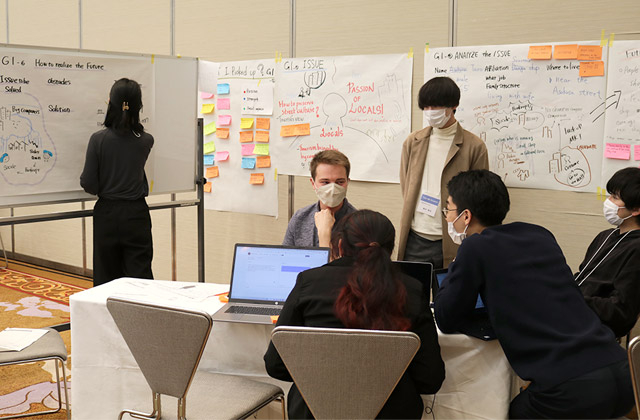
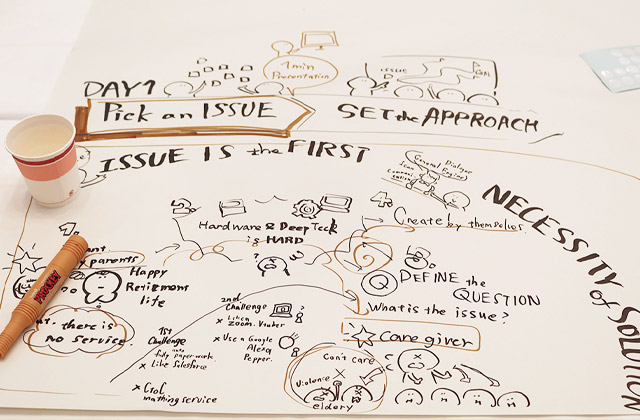
Teams considering ways to realize ideal future
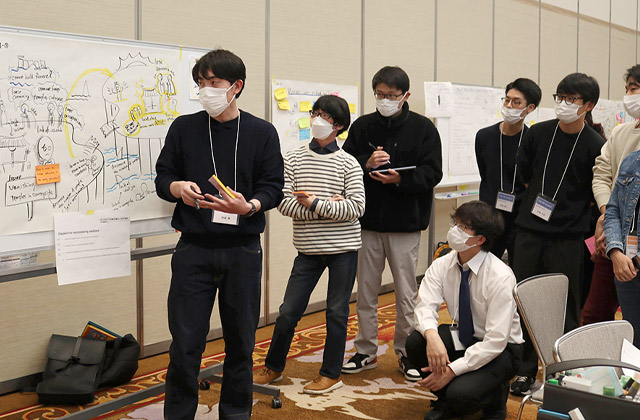
Poster presentation
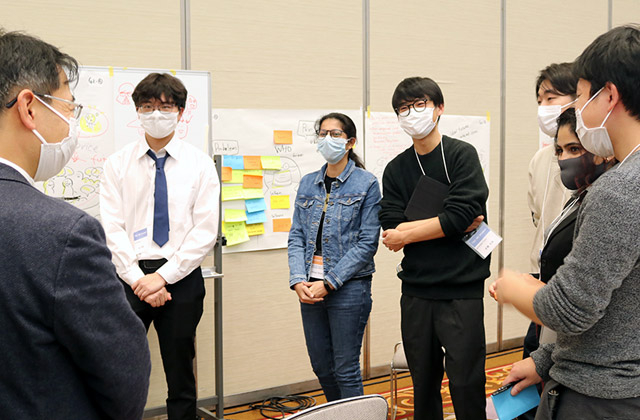
Feedback after presentation from faculty members
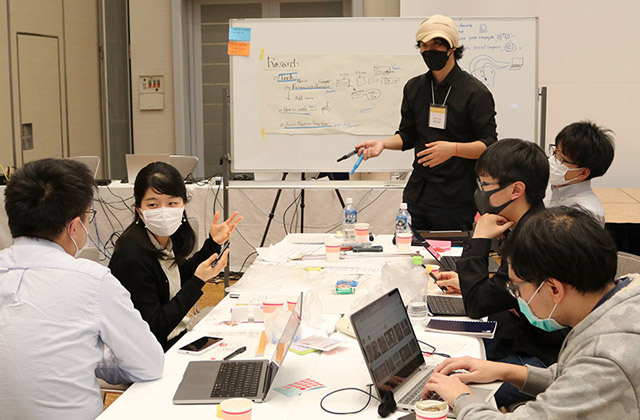
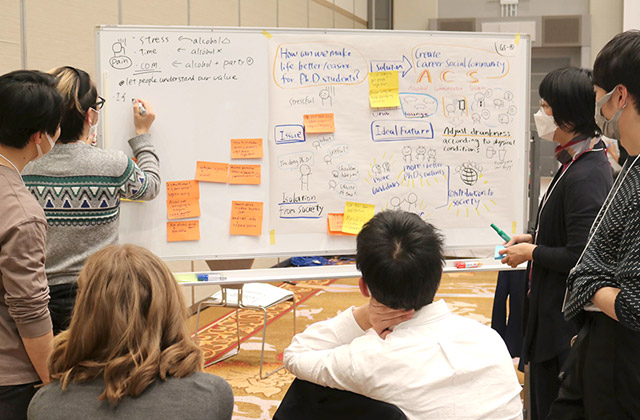
Brushing up ideas after receiving feedback
Final presentations and awards
During the final presentations on the afternoon of the second day, each group proposed and presented future services to solve issues that could be implemented by 2032. These presentations were held in hybrid format for both in-person and online participants. Approximately 90 participants, including TAC-MI program staff members, industrial collaborators, and 2nd-year doctoral and master’s students of TAC-MI joined the session to listen to the final talks. Tokyo Tech Executive Vice President for Education Jun-ichi Imura was also present as a special guest.
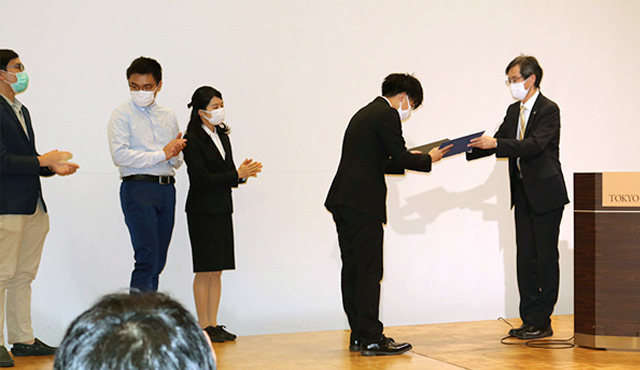
EVP Imura presenting award
After the presentations by each team, five judges determined the winners of several awards while considering votes cast by non-student participants.
At the awards ceremony, Imura presented the Originality Award, Practicality Award, and Social Impact Award to the following groups and offered his comments on their presentations.
Award winners and presentation titles
Originality Award
Group 6
Anyone, any food, anywhere
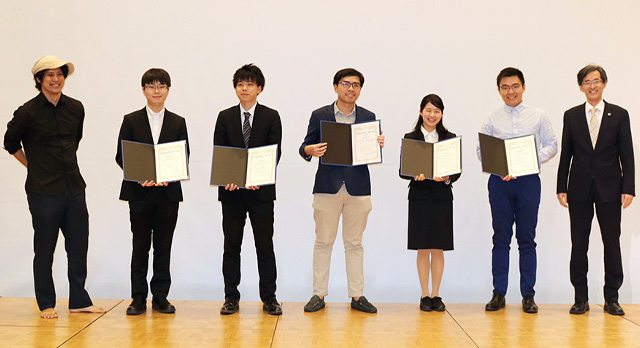
Group 6: Originality Award
Practicality Award
Group 5
Alcohol communication system
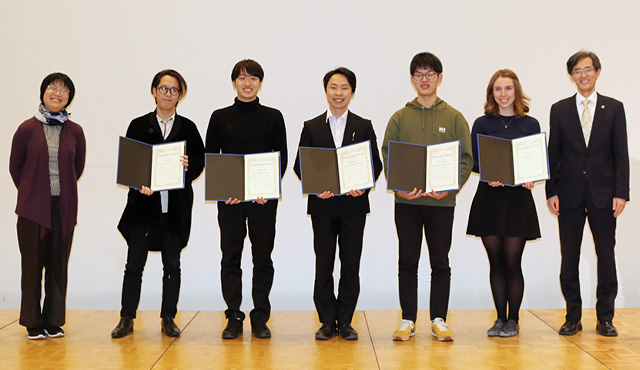
Group 5: Practicality Award
Social Impact Award
Group 2
When & which mask should we wear? Mask 2.0
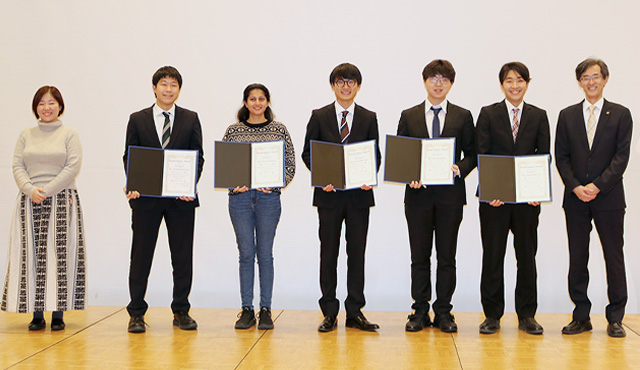
Group 2: Social Impact Award
This workshop was held in person for the first time after the 2020 and 2021 events were forced online due to COVID-19.
Together with the TAC-MI International Forum, this workshop provided an outstanding opportunity for participants to discuss their own research and workshop topics, and to deepen exchanges with overseas researchers, faculty members, and TAC-MI students.
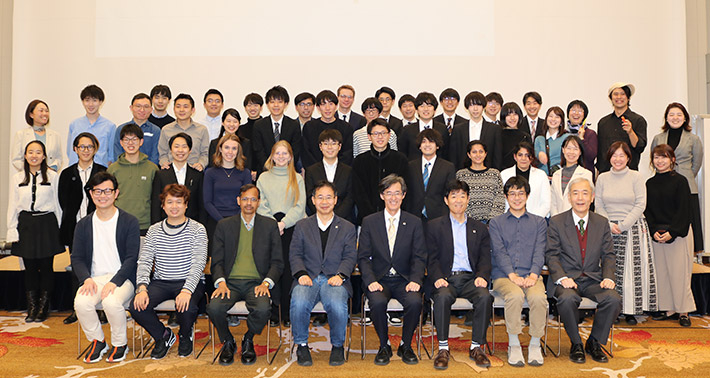
Participants during final presentation session
What is TAC-MI?
TAC-MI, established in January 2019 under the auspices of the Doctoral Program for World-leading Innovative & Smart Education (WISE) of the Ministry of Education, Culture, Sports, Science and Technology, aims to cultivate multi-talented individuals who can play a leading role in creating new industries and academic fields involving materials science, information science, and social services. The program also places strong emphasis on working closely with industry.








